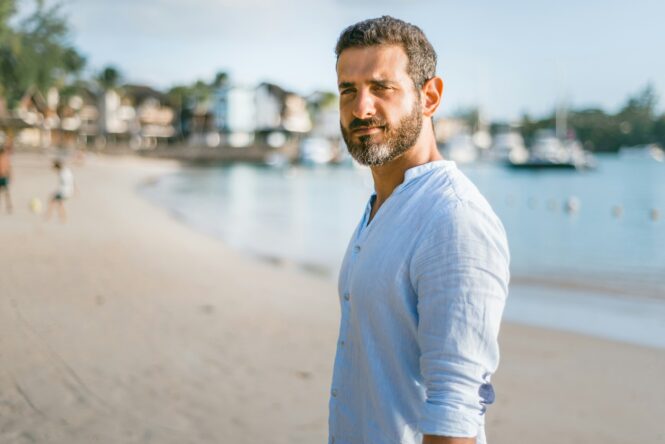Masking your autism is more than just hiding certain traits.

You end up shaping yourself to meet the comfort levels of everyone around you, often at the cost of your own. As time goes on, living in that kind of survival mode can blur the lines between who you are and who you had to become. It’s exhausting, but worse than that, it can make you feel like you’ve lost touch with the real you. These signs might sound familiar if you’ve spent more time blending in than being fully seen.
1. You second-guess what you actually enjoy.

When you’ve spent years mirroring other people or pushing your interests aside to seem more relatable, it gets hard to tell what you genuinely like. You might even question whether your hobbies are real or just things you picked up to fit in. Your confusion isn’t a lack of personality. It’s a sign you’ve been shapeshifting for so long that your preferences got buried under performance. It takes time and space to uncover what’s actually yours.
2. You feel like a different person depending on who you’re with.

Being adaptable is one thing, but when you’re completely changing your tone, facial expressions, or personality traits around different people, it stops being flexibility and starts becoming emotional camouflage. Constantly changing yourself might help you feel safer socially, but it can leave you feeling disoriented later. You know how to make people comfortable, but at the cost of never feeling fully known.
3. You’re chronically exhausted and can’t figure out why.

Masking isn’t just emotional—it’s physical, too. The effort it takes to monitor your reactions, suppress stimming, manage eye contact, and rehearse responses burns through your energy fast. If you’re always tired after social interaction, even the smallest kind, it’s a clear sign that you’re working overtime to appear “normal.” That level of effort wears on your body and your identity alike.
4. You rehearse conversations before they happen, even casual ones.

Thinking ahead is one thing, but if you’re mentally scripting every interaction, even small ones, it’s often because you don’t feel safe showing up as yourself in real time. That constant preparation creates the illusion of ease, but it disconnects you from your own voice. You’re not participating, you’re performing. That leaves little room for authenticity.
5. You can’t tell if you’re being authentic or just performing anymore.

You’ve got so good at fitting in that even when you try to relax, you’re not sure if it’s really you coming through. The line between who you are and who you pretend to be has blurred so much it’s almost invisible. That confusion is more common than people realise. When masking becomes automatic, identity becomes something you manage, not something you feel rooted in.
6. You feel disconnected from your own emotions.

Masking doesn’t just cover social traits. It can also suppress emotions. You might have taught yourself to tone down excitement, hide discomfort, or keep a neutral face to avoid judgement. Eventually, those habits can dull your connection to your own feelings. You start noticing your emotional responses only after the fact, if at all, because you’ve been trained to keep them under wraps.
7. You’ve learned to copy how other people behave instead of trusting your instincts.

From facial expressions to tone of voice, you might find yourself mimicking the people around you to avoid standing out. It becomes second nature not because you’re fake, but because that’s how you’ve learned to stay safe. However, when imitation becomes your default, it starts to destroy your connection to your own intuition. Instead of asking “What feels right to me?” you ask “What would make me blend in right now?”
8. You struggle to answer basic questions about yourself.

Questions like “What do you like to do for fun?” or “What kind of people do you enjoy being around?” feel harder than they should. You pause longer than most, not because you don’t have thoughts, but because the answers don’t feel clear or stable. That uncertainty is often a symptom of years spent adjusting yourself to other people’s expectations. The real answers are probably still in you; they’ve just been hidden behind layers of habit.
9. You feel like you’re always “on,” even when you’re alone.
 Source: Unsplash
Source: Unsplash Masking doesn’t always stop when the social interaction ends. Sometimes, you carry that pressure with you into private spaces—checking your tone in texts, replaying old conversations, or criticising how you came across hours after the fact. When masking becomes ingrained, solitude doesn’t always bring peace. It just becomes another space where you’re managing the memory of being perceived.
10. You overanalyse your reactions in real time.
 Source: Unsplash
Source: Unsplash Instead of just letting yourself laugh, flinch, or get excited, you monitor every emotional reaction as it’s happening. You’re wondering, “Was that too much?” or “Did I come across weird?” even before you’ve finished the sentence. That constant self-monitoring disconnects you from the present moment. You’re not just participating; you’re watching yourself participate, and that’s exhausting in a way most people don’t see.
11. Compliments about how “normal” you seem make you feel uneasy.
 Source: Unsplash
Source: Unsplash When someone says, “I’d never know you’re autistic,” they might think it’s kind, but deep down it stings. It’s a reminder that your effort to pass is working, but also that the real you is still hidden. That type of praise reinforces the pressure to keep masking. It tells you that your worth is tied to how well you blend in, not how well you’re understood as you actually are.
12. You’ve learned to fake comfort instead of actually feeling it.
 Source: Unsplash
Source: Unsplash In social situations, you might smile, nod, or laugh in the right places, but it doesn’t mean you’re at ease. You’re just mirroring the expected response while your nervous system stays in overdrive. It creates the illusion that you’re coping well, but underneath, there’s often anxiety or disconnection. It’s not about being dishonest; it’s about survival. However, it leaves you craving authenticity in ways that aren’t always easy to explain.
13. Deep down, you’re not sure who the “real you” is anymore.
 Source: Unsplash
Source: Unsplash When you’ve been adapting for so long, identity starts to feel like a collection of strategies rather than something solid. You might not know where the mask ends and where you begin. That realisation can be heavy, but it’s also where things start to shift. Naming it is the first step toward peeling back those layers—not all at once, but little by little, in spaces that feel safe enough to hold the real you.




